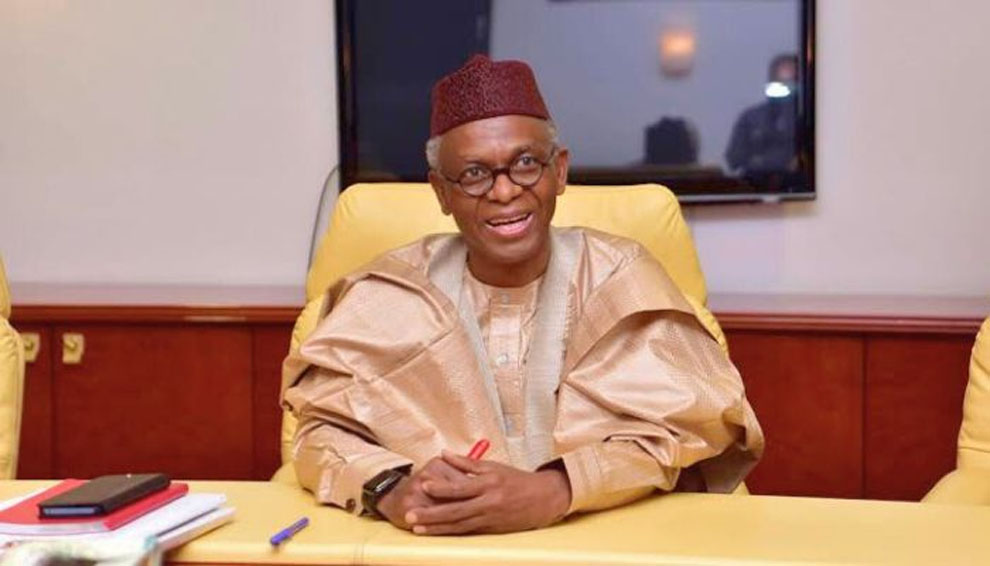metro
Ritual: Herbalist tackles hotelier, Yahoo boy over missing woman

Men of the Ogun State Police Command have arrested four men over the disappearance of a 36-year-old woman, Aminat Adebayo, who went missing about two months ago.
The suspects, Azeez Raimi, 21; Saheed Yusuf, 33; Michael Awodero, 27; and Soneye Lateef, 39, were arrested following a complaint lodged at the Sagamu divisional police headquarters by the elder brother of the victim, Ahmed Adebayo.
The state Police Public Relations Officer, SP Abimbola Oyeyemi, in a statement on Thursday, said Ahmed told the police that his younger sister left home on September 15 and her whereabouts had been unknown since then.
The PPRO said, “In compliance with the CP’s directive, the SP Taiwo Opadiran-led team embarked on technical and intelligence-based investigation, which led them to a hotelier, Soneye Lateef, in whose facility the victim was seen last.
“On interrogation, the hotelier admitted that the missing woman was in his hotel on that day at the invitation of her friend, Bose Fajebe, who came to the hotel with her boyfriend.
READ ALSO:
- Lagos, Port Harcourt likely to witness ‘weather catastrophe’ – FG
- Ukraine: We will not negotiate with war criminals
- Ukraine war: Kyiv claims major gains as Russia exits Kherson
“The said Bose Fajebe invited the missing woman to join them, but as soon as she arrived, the hotelier picked interest in her and started having a romantic discussion with her.
“While the two of them were discussing, Bose and her boyfriend left.
“The hotelier further explained that the missing woman also left not quite long after and later in the night, he also left the hotel with two of his friends, namely Saheed Yusuf and Michael Awodero, to meet a herbalist, Azeez Raimi, who was to carry out an Ifa divination ritual for them and that they were all at the shrine throughout the night.”
Oyeyemi explained that contrary to the claim by the hotelier that the missing woman was not with them at the shrine, the Ifa priest confirmed that he saw the woman in the vehicle with Lateef and Yusuf outside the shrine.
The PPRO added that the priest insisted that the two men later left with the woman.
According to Oyeyemi, the herbalist said they went back the following morning without the woman.
Oyeyemi said, “He also gave a vivid description of the woman he saw, and when her photograph was shown to him, he confirmed it as the woman he saw with Soneye Lateef and Saheed Yusuf.
“Michael Awodero also corroborated the herbalist’s statement that they were all at the shrine throughout the night, but the hotelier and his friend, Saheed, who is an Internet fraudster, left the shrine with the woman in the night and came back in the morning without her. Further investigation revealed that the woman must have been used for a ritual purpose.”
The police spokesman said the state Commissioner of Police, Lanre Bankole, had ordered that the suspects be prosecuted. Punch
metro
Ex-LG chair challenges El-Rufai’s claims on council funds

Ex-LG chair challenges El-Rufai’s claims on council funds
Former Secretary of the Association of Local Governments Of Nigeria (ALGON), Kaduna State chapter, Alhaji Kabiru Jarimi, has refuted ex-Governor Nasir El-Rufai’s claim that he never interfered with Area Councils’ funds during his tenure.
Jarimi, who served under El-Rufai’s administration, described the claim as misleading, stating that funds were routinely deducted from councils’ allocations under various guises by the previous government.
The ex-ALGON State Secretary, who is also the former Chairman of Kaduna South local government, disclosed this in an interview over the weekend.
“I was shocked by El Rufai’s comment because local government funds were deducted without our approval. Most of the deductions targeted Southern Kaduna LGAs.
READ ALSO:
- Some ladies in movie industry ready to sleep their way to fame — Jide Kosoko
- Gunmen abduct Catholic priest in Anambra
- Adeleke University didn’t suspend Muslims for praying – MSSN
“We never got our full allocations under El-Rufai. His government kept introducing policies to deduct funds unnecessarily. I even considered resigning. At times, we had no funds for overhead costs after paying salaries,” he recalled.
Jarimi, who said that El-Rufai justified the deductions as necessary to settle workers’ salaries, further noted that the state government also employed various means to withdraw additional funds.
The former Council Chairman cited the creation of the Kaduna Capital Territory Authority, Zaria Metropolitan Authority and Kafanchan Municipal Authority as a means of shortchanging local governments.
“Salaries were shared 60–40 between the capital territories and LGs around them. In Kaduna South, deductions were made in the name of sanitation, forcing us to remit funds to the Kaduna Capital Territory Authority (KCTA) every month,” he stated.
The former Chairman further alleged that the funds of local governments outside the capital territories were also deducted without explanation, citing deductions for security and ‘riot damage.’
Ex-LG chair challenges El-Rufai’s claims on council funds
metro
Gunmen abduct Catholic priest in Anambra

Gunmen abduct Catholic priest in Anambra
A Catholic priest, Rev. Fr. Stephen Echezona of St. Patrick Church, Ichida, has been reportedly abducted by gunmen in Anambra State.
According to a report by security analyst and counter-insurgency expert, Zagazola Makama, the incident occurred around 6:00 p.m. on Saturday when four armed men, operating in a white Lexus 330 SUV with an unknown registration number, intercepted the cleric and whisked him away along with his Toyota Highlander SUV.
READ ALSO:
- Adeleke University didn’t suspend Muslims for praying – MSSN
- Juventus to sign Osimhen with player-plus-cash offer
- Police inspector kills one, injures two, holds colleagues hostage in Calabar
A joint team of security operatives and local vigilantes (AVG) were said to have responded swiftly to the attack, pursuing the assailants and engaging them in a gun duel at a road intersection between Oraeri and Akwaeze villages.
Though the criminals managed to escape, their Lexus SUV sustained significant damage, including a shattered rear windshield.
The Anambra Police Command is yet to release a statement on the abduction of the priest.
Gunmen abduct Catholic priest in Anambra
metro
Adeleke University didn’t suspend Muslims for praying – MSSN

Adeleke University didn’t suspend Muslims for praying – MSSN
The Muslim Students’ Society of Nigeria (MSSN), Adeleke University Branch, Ede, Osun State, has described as “fake news” a statement credited to MURIC which alleged the suspension of a Muslim student of the university over Friday prayers.
The association, in a statement signed by its Ameer, Imran Adigun AbdulHakeem, on Sunday, said MURIC’s reports circulated on social media were a misrepresentation of happenings within the university, saying “our faith is respected by the management.”
In another letter, the association apologised to the director and facilitator of the university, Chief (Mrs) Dupe Adeleke-Sanni, whom the association credited with providing a conducive atmosphere for Muslim students to practise their faith.
The letter reads: “On behalf of the Muslim Students Society of Nigeria (MSSN), Adeleke University Chapter, [I] write to address the ongoing misinformation circulating on social media and other platforms regarding the suspension of Muslim Students for praying on Campus.
“On the 14th of March, 2025, we were temporarily suspended from observing our Night Ramadan Prayers (Taraweeh) and Jummat prayers on campus on the orders of the Director of Security Service (DSS).
“However, on the 18th of March, we met with Dr. Mrs. Modupe Adeleke regarding these challenges.
READ ALSO:
- Juventus to sign Osimhen with player-plus-cash offer
- Police inspector kills one, injures two, holds colleagues hostage in Calabar
- Fresh explosion rocks gas facility in Rivers
“She provided us with a place where we could observe Ramadan, Jummat prayers, and the five daily prayers which we accepted. As a result, the suspension has been lifted, and we have resumed prayers at the new location provided by the university on the orders of Dr Modupe Adeleke.
“At no time have Muslim Students been forced to change their beliefs. While challenges may arise in any diverse academic institution, the university management has always been open to dialogue, and we have continued to receive support in practicing our faith.
“Adeleke University has provided a peaceful and respectful environment for all faiths, and we continue to practice our religion freely.
“We urge the public to disregard the misinformation that may have been spread regarding this matter as they do not reflect the reality of our experiences,” the letter to the university management noted.
The letter of apology to Chief (Mrs) Dupe Adeleke-Sanni reads: “As-salamu alaykum (peace be upon you). On behalf of the Muslim Students’ Society of Nigeria (MSSN), Adeleke University Chapter, I apologize for any distress caused by the false social media reports.
“We assure you that we had no hand in spreading the misinformation. We are deeply grateful for your unwavering support, guidance, and kindness towards us.
“Your commitment to our well-being and academic success is invaluable, and we appreciate everything you’ve done for us. May Allah (SWT) reward you abundantly for your good deeds. Jazakumullah khairan (may Allah reward you with goodness).
“Thank you for being an exceptional Mother and mentor. We are blessed to have you,” the letter added.
Adeleke University didn’t suspend Muslims for praying – MSSN
-

 metro2 days ago
metro2 days ago‘We’re not hiring,’ NNPC denies viral recruitment adverts
-

 metro2 days ago
metro2 days agoNatasha: Court blocks recall attempt, stops INEC
-

 Sports2 days ago
Sports2 days agoOdegbami speaks on Osimhen breaking his 44-year goals record
-

 metro3 days ago
metro3 days agoMore trouble brews in Rivers as Ijaw congress considers self-determination option
-

 Entertainment2 days ago
Entertainment2 days agoI didn’t snatch Asake’s mother from her husband -Musibau Alani
-

 Sports2 days ago
Sports2 days ago2026 WCQ: Super Eagles move up to third place with 2-0 win in Rwanda
-

 metro2 days ago
metro2 days agoBoko Haram attacks military base in Adamawa
-

 metro2 days ago
metro2 days agoOluwo accuses Ooni of plotting to dethrone him













